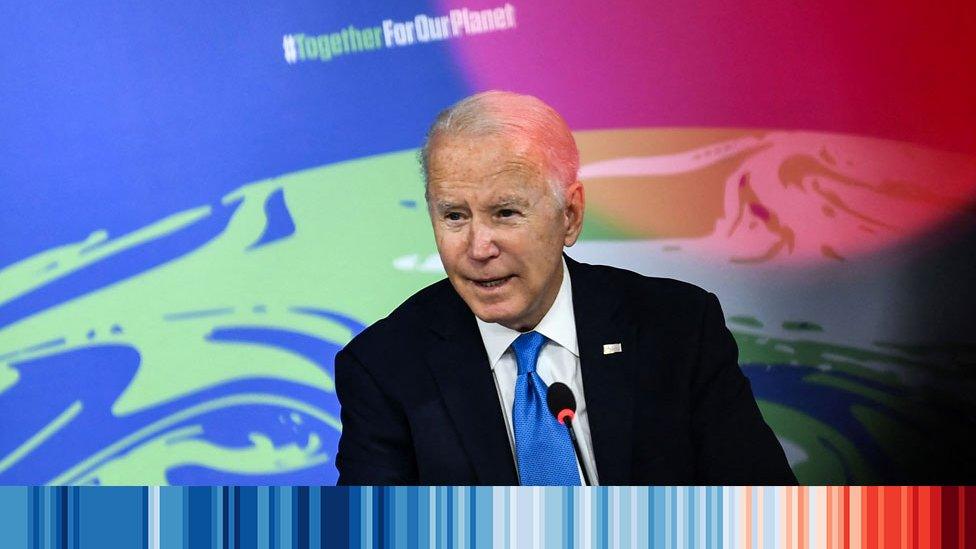Insulate Britain: Injunction banning protests on London's roads extended
- Published
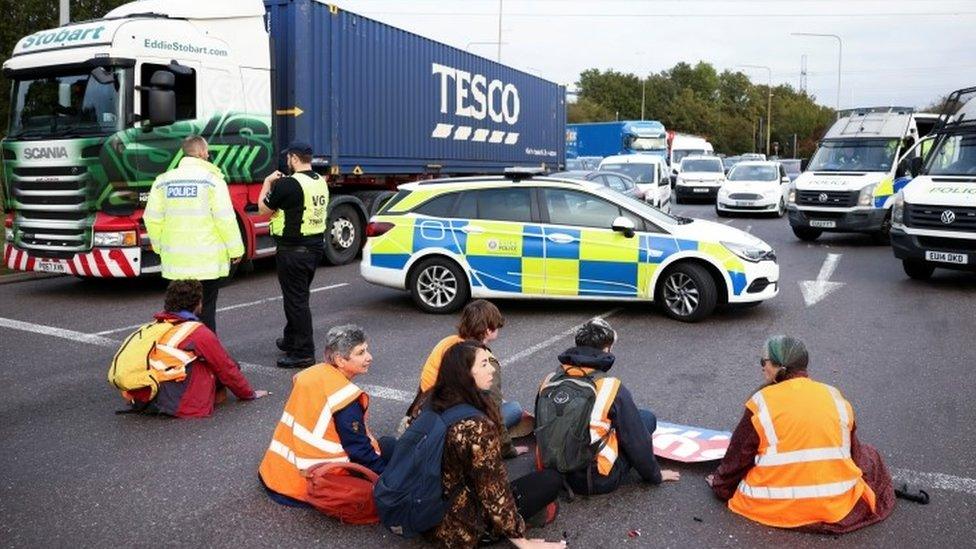
Insulate Britain protesters have held numerous demonstrations in London, Essex and the South East
An injunction to ban Insulate Britain protesters from holding demonstrations on London's roads has been extended.
Transport for London (TfL) was granted the civil banning order earlier this month to prevent activists obstructing traffic on the city's roads.
At the High Court, Mr Justice Lavender also granted permission for a list of named individuals it covers to be amended.
He extended the injunction until either a trial is held or 8 April.
It could also be extended if another court order is issued.
Insulate Britain protester Dr Diana Warner told the hearing she was willing to continue the campaign of "civil resistance" until there was "a meaningful statement from the government that we can trust".
The retired GP said: "I'm willing to give up my freedom and my house. These are all the material things I have," she said, adding there was "everything to lose if we destroy the Earth that sustains us".
The group wants all homes to be insulated by 2030, which government experts on climate change say is essential to meet targets on reducing carbon emissions.
Members of the protest group also have three other injunctions against them banning them from demonstrations on the M25, around the Port of Dover and on major roads around London. These orders were granted to National Highways.
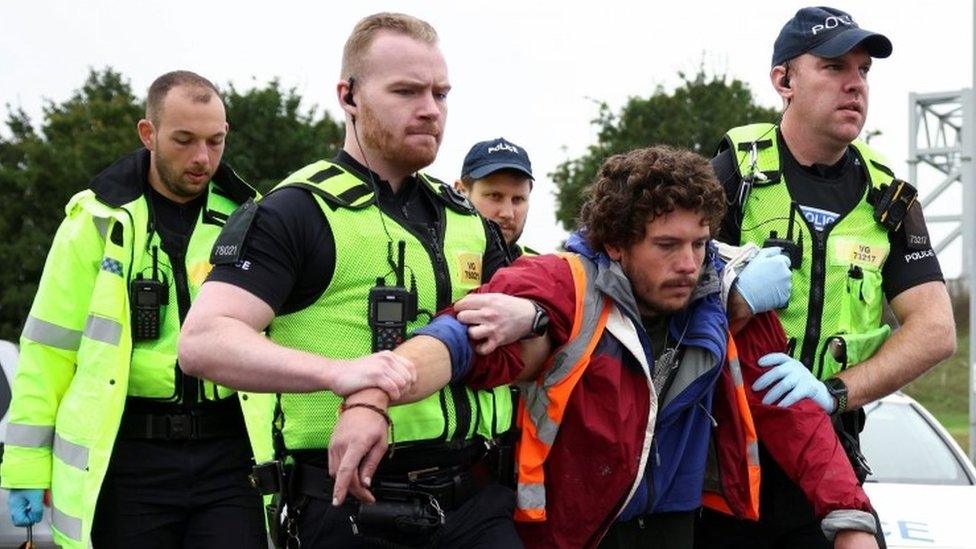
The High Court heard that Insulate Britain was "committed to non-violence"
Last week, the court heard National Highways might ask for a default or summary judgment, which could mean the case against the protesters being resolved without a trial.
Mr Justice Lavender also granted a request by TfL's barrister, Andrew Fraser-Urquhart QC, for further disclosure of information by the Metropolitan Police relating to arrests.
During the hearing, Dr Warner also said the group was "intent on keeping the public safe" and "committed to non-violence".
The 62-year-old added there was a "wide gulf" between her understanding of "what constitutes safety" and National Highways' stance. She said National Highways should slow traffic to 10 or 20mph when people were on the motorway.
Breaching a court order could result in up to two years in prison and an unlimited fine.
Related topics
- Published14 April 2022
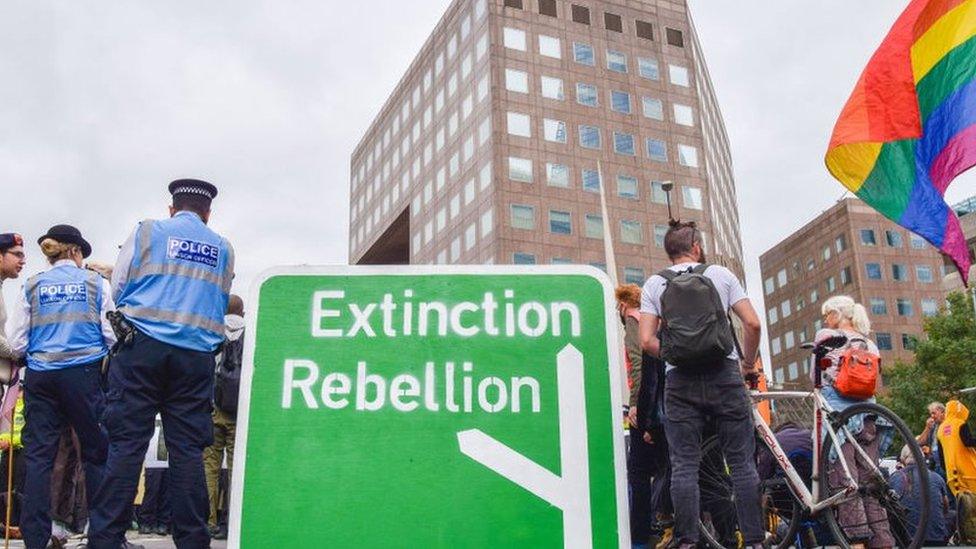
- Published13 October 2021
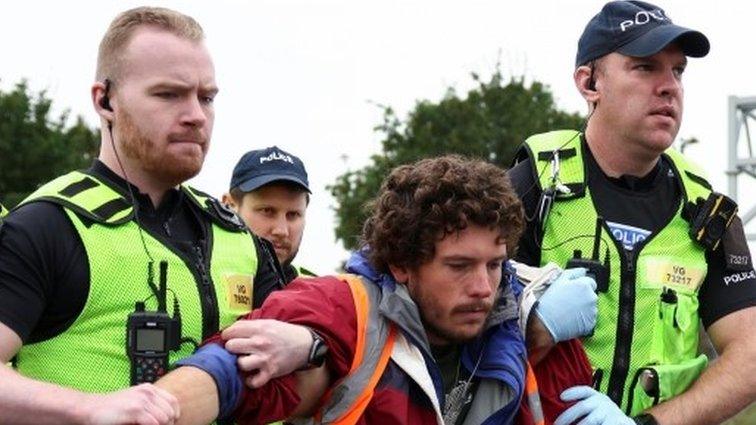
- Published8 October 2021
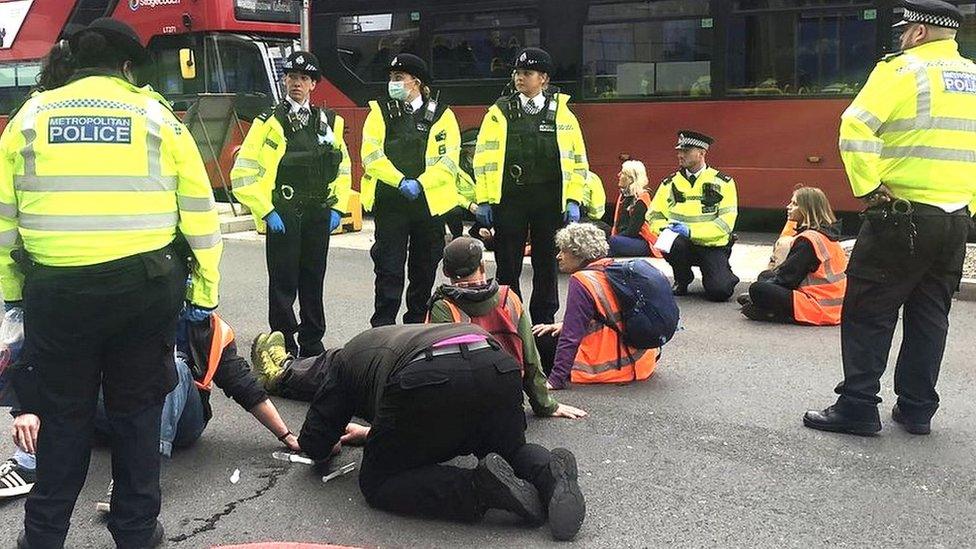
- Published5 October 2021
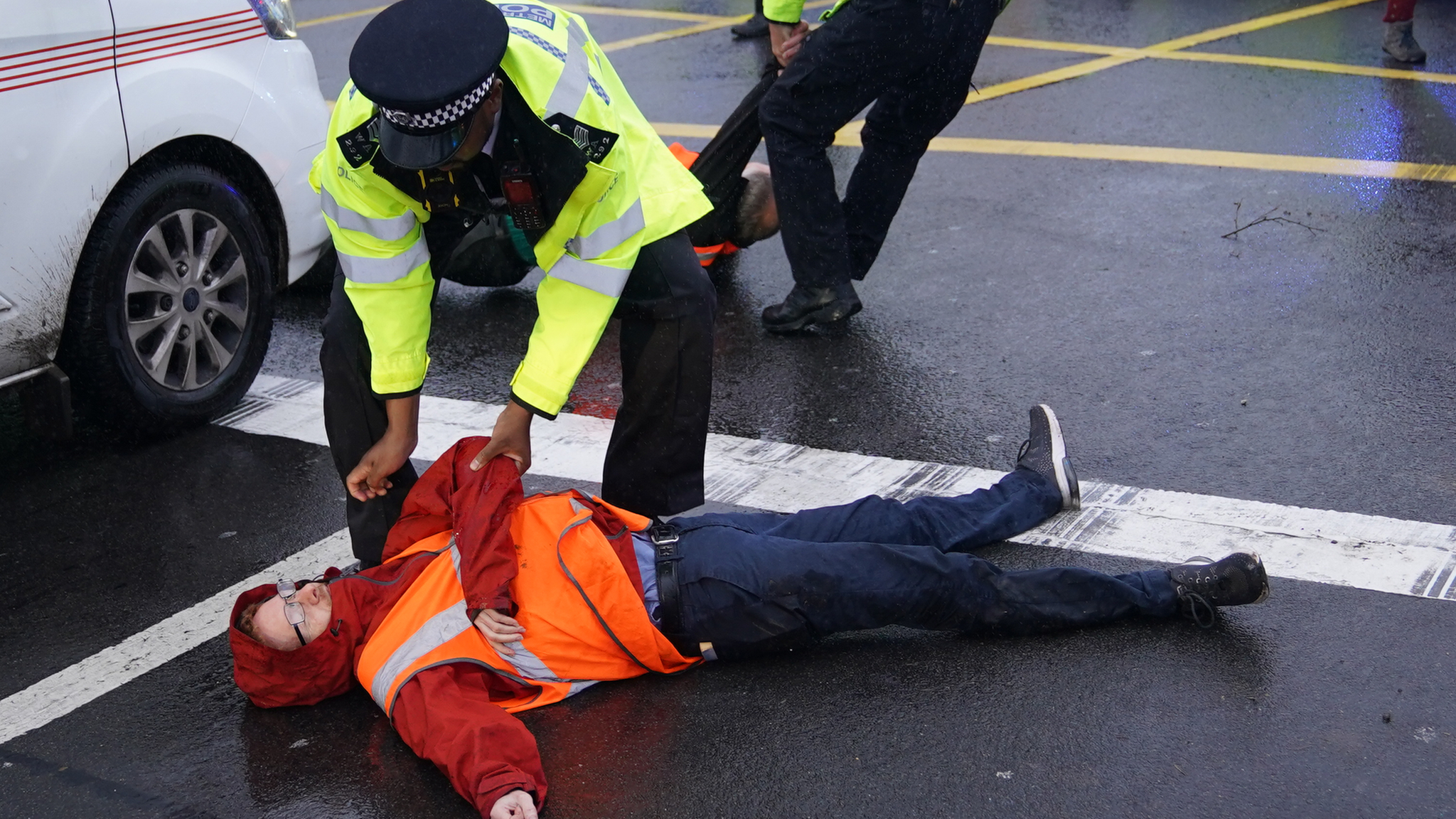
- Published15 November 2021
